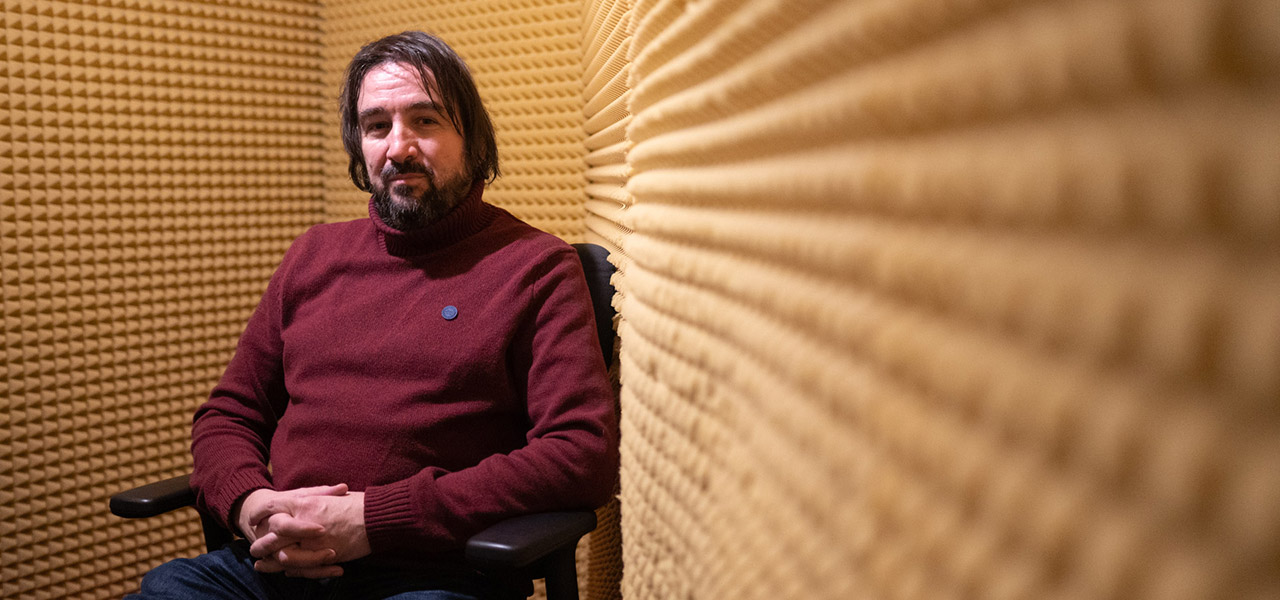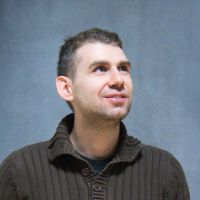Nebojsa Viskovic: The first racket of Serbian journalism
His commentary left us breathless as we followed the greatest successes of Serbian tennis and his voice made even the dullest soccer game exciting for us. He is Nebojsa Viskovic, a Serbian journalist and commentator who speaks for 011info about his childhood and his immense love for sports, revealing what is the key essence of sports commentary.
Usually our parents tell us about our birth when we’re kids and how they took us out of the hospital for the first time. However, you learned a key piece of this information only half a century after the ‘premiere’.
I was born at the “Narodni front” hospital and as a baby I spent my days in Zvezdara, in Milana Rakica street. I actually believed that until recently when my father gave me a shock. We were talking and he suddenly tells me that after I was born they took me directly to Cubura. I was stunned. Cubura? Why Cubura? How did I not know this until I was 50!?
Namely my father, just like many of his colleagues in JAT at the time, could reside in an apartment owned by the company until he got his own residence. So that’s where we spent the first two or three months of my life. And that’s how I lived for 50 years believing I was born in Zvezdara (laughter).
From Cubura to Zvezdara and then two years later you were transferred - or should we say “borrowed” abroad.
Yes, we moved to Germany because my father was sent there as a JAT representative. When I was two years old, we packed our suitcases and lived there for two or three years. My earliest memories are actually from Berlin. I went to their preschool and was as fluent in German as other German children.
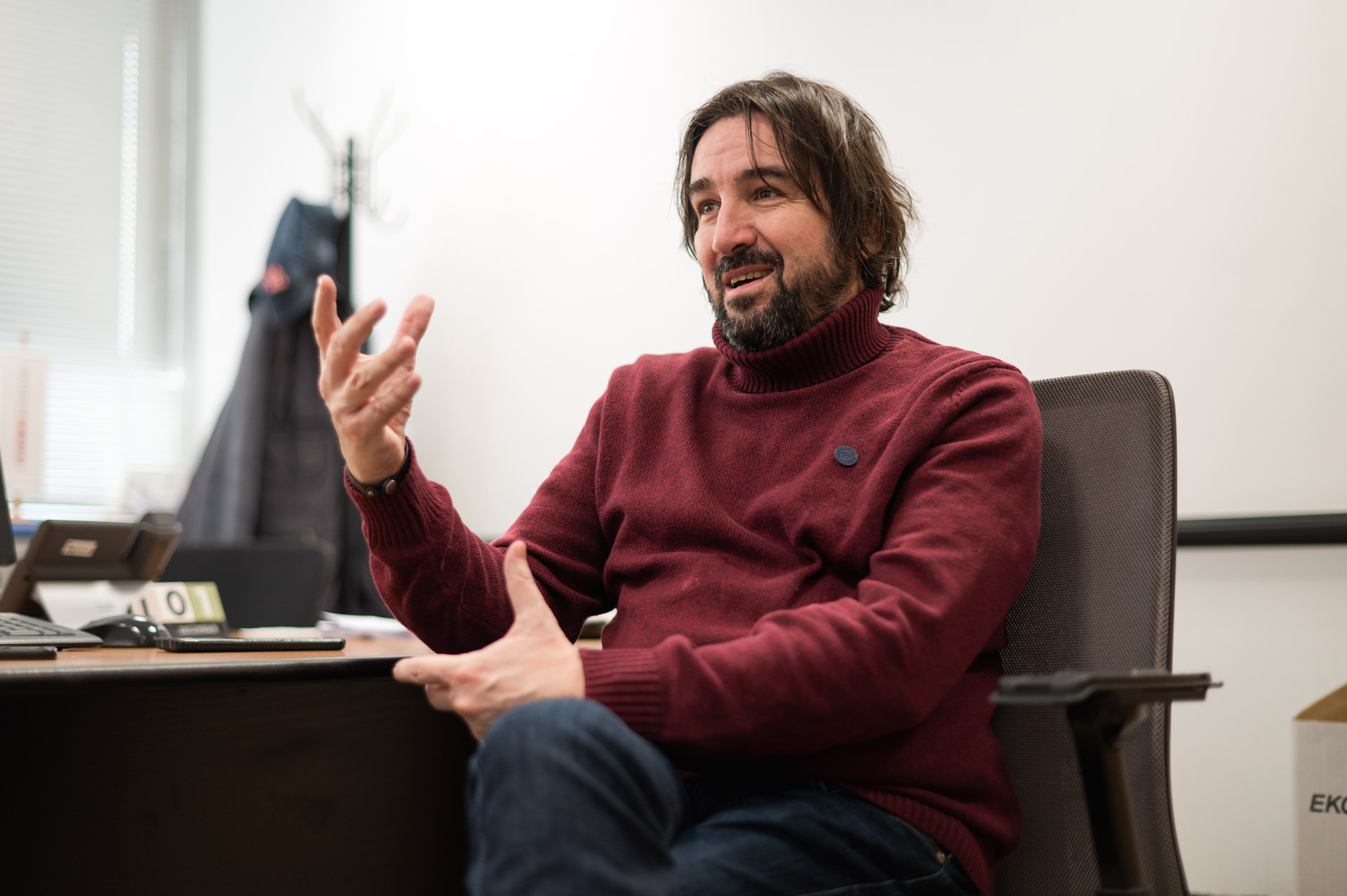
You became a New Belgrade resident when you returned home.
We returned when I was just about to start junior school. We lived in Block 28 until 1983-84, and then we moved to Block 21 where we have lived to this day. So I can say that I actually grew up in New Belgrade and I had a great childhood there.
When I was 12-13 years old, my block got a serious “crew” going and this crew was actually the predecessor of the later so-called “bad boys of the asphalt”.
However, compared to those we’ve got today, the guys of that time had an honor code of sorts. They called themselves “League 28” and it was one of the first serious New Belgrade ‘crews’. But they never bothered or recruited us kids. On the contrary, they watched over us and protected us from the thugs from rival Blocks. Sadly, almost all of them met an untimely end.
On the other hand, unlike many of my friends from school, I didn’t have any relatives in the countryside. So while my classmates enjoyed their vacations in the countryside, I had to keep company to my grandma in Banovo hill in Zrmajska street where I had a tremendous crew of friends.
We didn’t have computers or mobile phones back then, so we spent our days outside riding our bikes and of course playing street soccer. They literally could not get me to go back inside the house. I was in love with the ball even back then. My entire purpose in life was to spend every waking moment playing soccer and basketball and we were rivals with a team from Kirovljeva street and played against them all the time. Those were wonderful days.
So you could safely assume even then that you’d be making your living with sports.
I trained soccer with the “Radnicki” team from New Belgrade and I have to say I was pretty good at it until I suffered a severe leg fracture while skiing. Then I had to spend six months in a cast and with crutches and that put an end to my soccer career. But soccer remained my biggest love. Probably because I played it so much and had a knack for it.
Still, tennis was the first sport I ever trained. Believe it or not, I took my first steps in tennis as a kid in Berlin. With a wooden racket of course. I came out to the tennis court again when I was 15 years old and although I never competed, I trained actively because I just adore tennis.
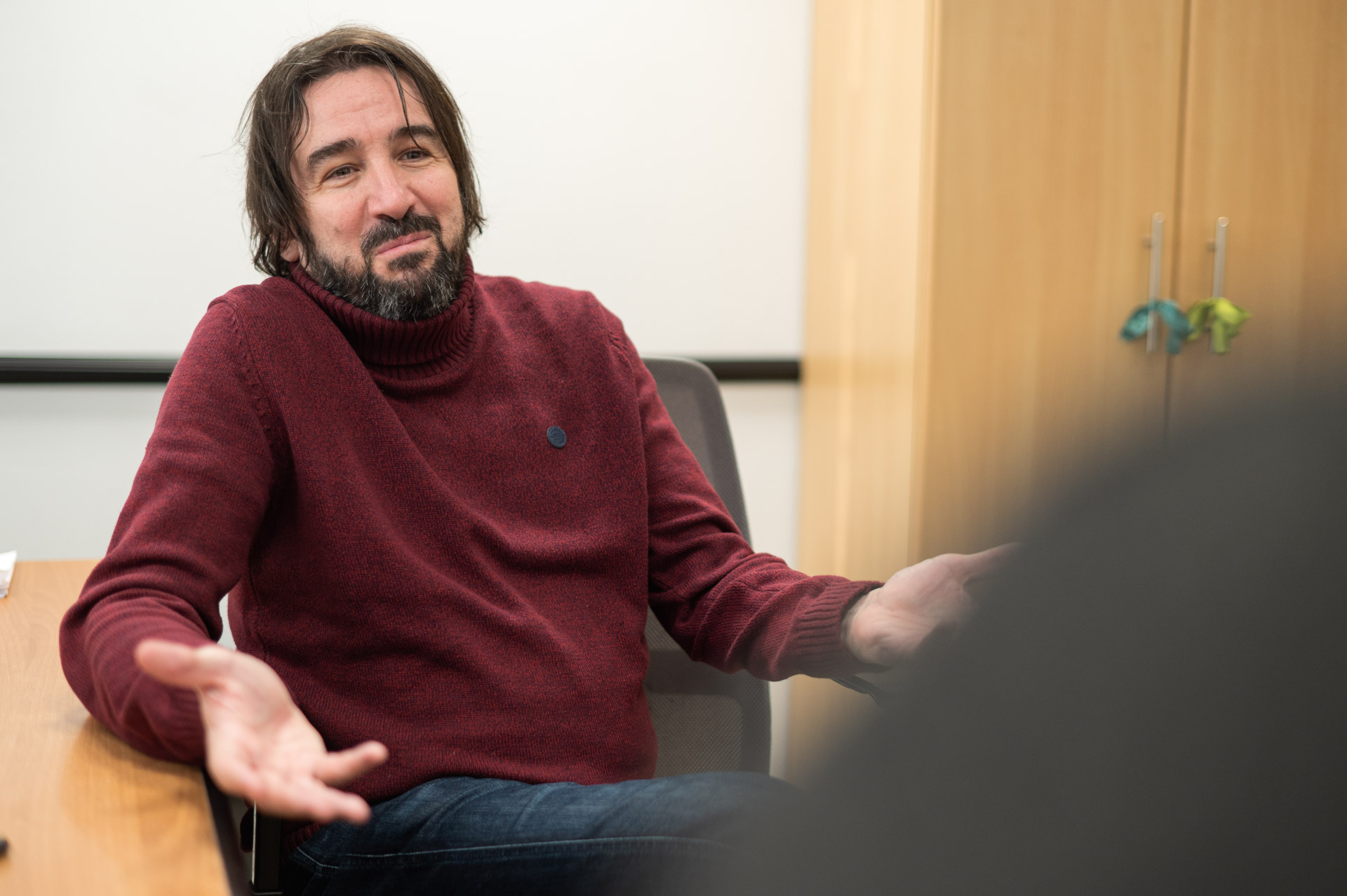
Do you ever lament the loss of your soccer career?
Oof. I really loved to play. I couldn’t even sit still inside the house. They tried to teach me to play the piano, but instead of practicing I used the piano legs as goal posts. I’d set up chairs to act as defensive players and then I’d take my rag ball which I made myself from string and cloth because back then real soccer balls were rare and I’d kick it until exhaustion.
My leg fracture cut me down in every way possible. Although I can’t say for sure what would’ve happened - maybe I never would’ve gone into a soccer career even if it hadn’t happened. Maybe I wouldn’t have become a top of the line player. But I’d probably at least be a defender for a Greek second-league team and still make more than I do now as a sports commentator! (laughter).
Jokes aside, I don’t regret any lost opportunities. We’ve all probably had so many potential life paths that we never took. It’s chance and fate that we take one path over the other, even though we might’ve potentially had more rewards. The real question is - is that really even worth thinking about?
At what point did journalism come into your life?
This is briefly how everything started. After I graduated from high-school, I didn’t really know what I wanted to do in life. That’s why I served my military time and then enlisted in Law school. This made sense to me because my father was a legal expert and my brother a lawyer. I passed my exams but it all sort of dragged along because I didn’t have passion for it.
Then my father got transferred to Vienna in 1991. There, it just so happened that I met a journalist from our country and spent a lot of time with him. When he realized I was interested in sports, he suggested that I could try my hand in the newly-founded “Sports journal”.
Per his recommendation, I visited them the moment I returned to Belgrade. Although I didn’t have any experience, they let me write some articles. Since they liked my work, they said to me “Kid, you’ve got a job here if you want it.” Of course, I started as a freelancer. As it usually goes, I fetched coffee for my senior colleagues but I also wrote as well. That’s how I ended up in journalism.
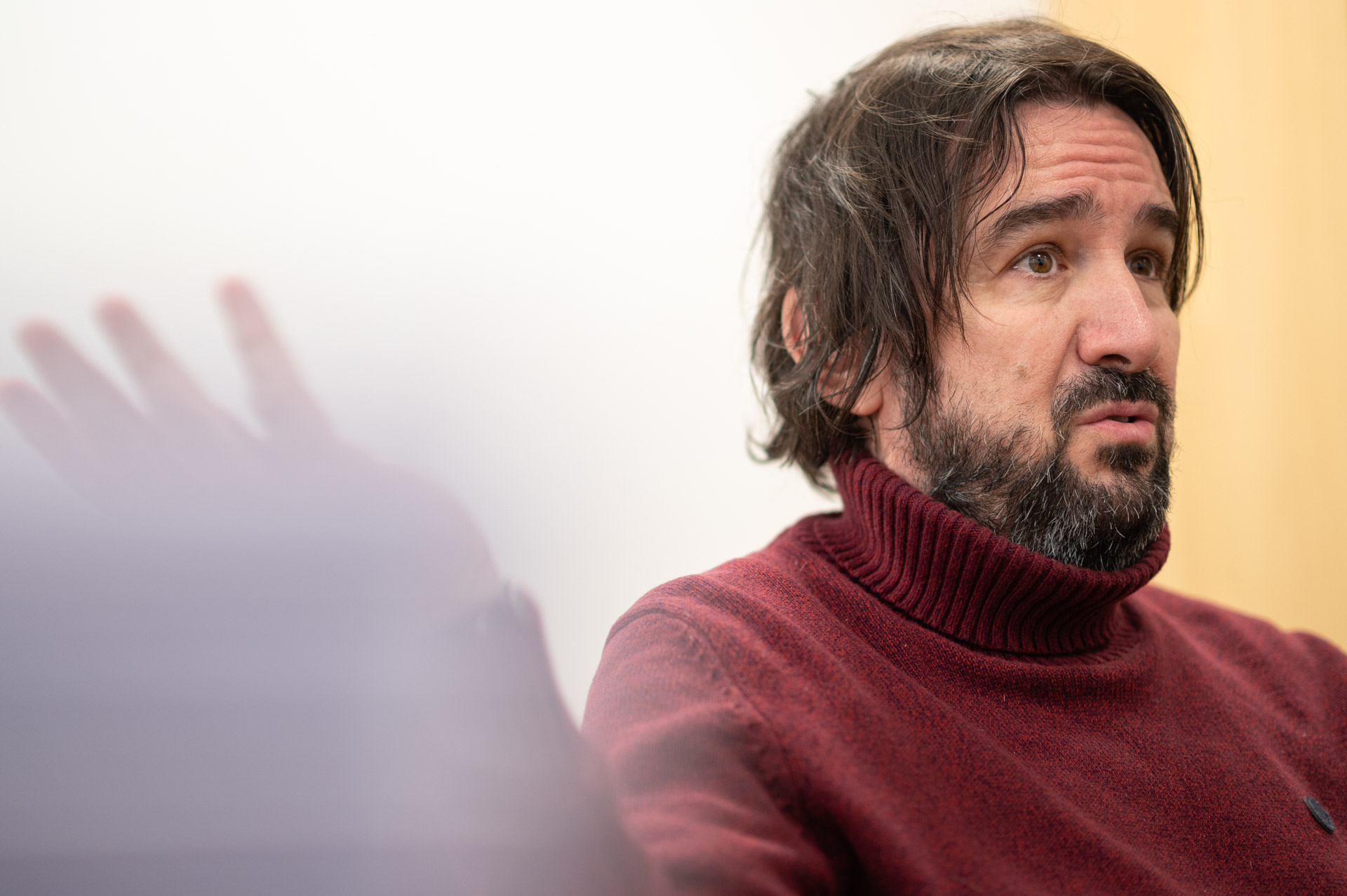
And the Law school?
I gave up on it. I remember the exact moment I broke the decision. I was supposed to be preparing for an exam, but I couldn’t focus on studying. Since my mom was doing something or other around the room, I hid a comic inside my textbook and read it instead of studying. Then it dawned on me and I thought “What am I doing? Who am I lying to? I’m 22 years old and I’m fooling my mother! This isn’t for me!”. In the end, I broke the decision and told my parents I couldn’t study law anymore.
It was while I was in that kind of limbo that this friend suggested I could try journalism. I just glided from one period of my life into the next.
Still, alongside it you had a regular job to earn a living.
I worked as a tennis coach alongside it. This was back in the 90’s when the sanctions were starting and a liter of gas cost 12 Deutsche marks. In the end, I couldn’t keep up that pace and the constant back and forth between the editorial office and the courts. I had to pick one.
So I got a call from “Treci kanal” TV station to try my hand at TV. This was ideal for me because the TV station was near my apartment. I didn’t want to give up tennis at first because I made my living with it. Back then, a journalist’s pay was something like 3 Deutsche marks, while a single tennis training session paid 10 marks. I went back and forth like that for three years before I realized in 1995 that I had to make a choice. I went with journalism because I realized I couldn’t progress very far as a tennis coach. I was also more attracted to journalism, even though I knew it didn’t pay as much.
That’s how I finally focused on journalism at the age of 25 and I’ve been on TV ever since. I spent over a quarter of a century on the mini screen.
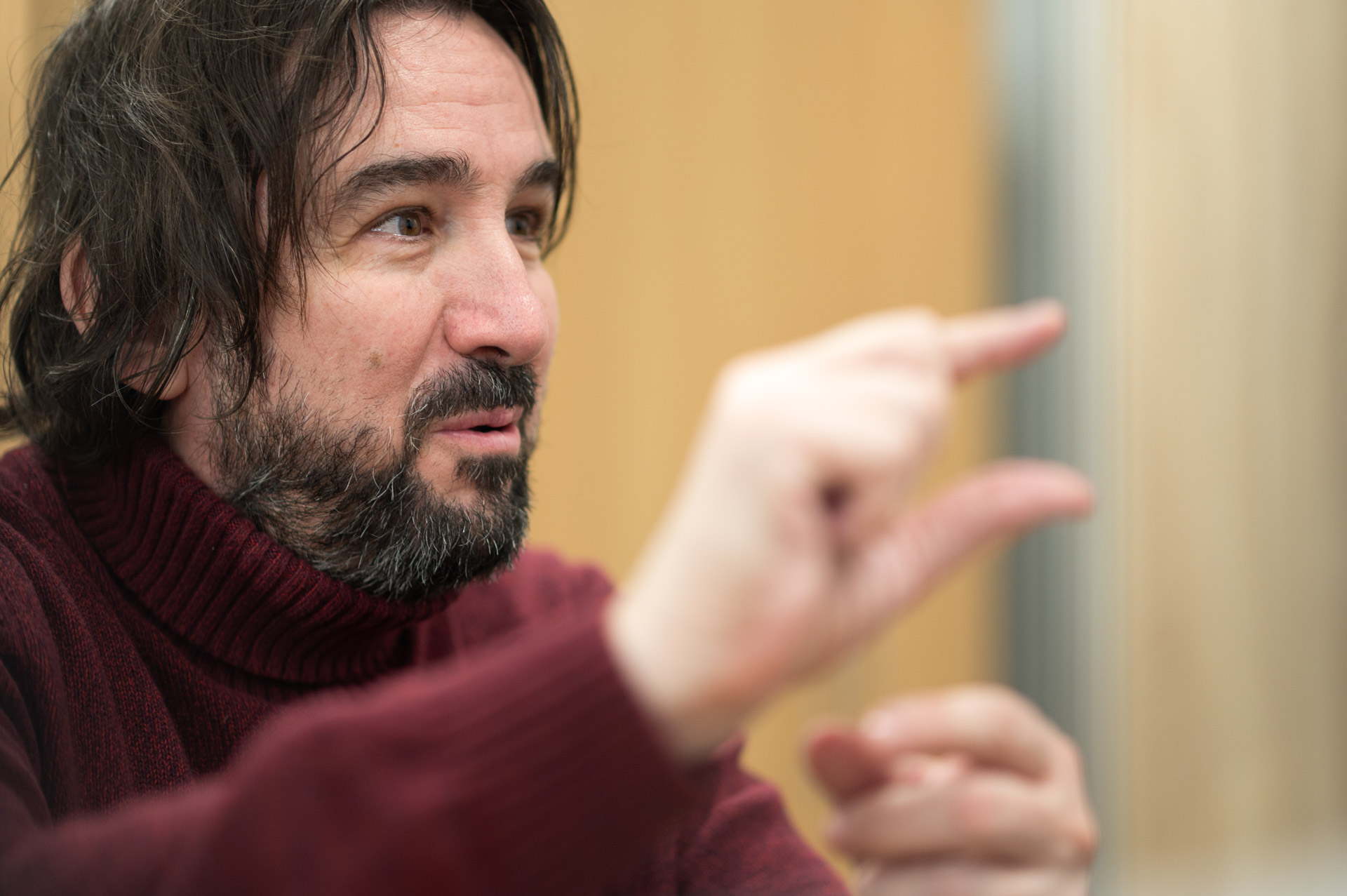
It seems like all those transitions happened rather smoothly in your life?
Timing matters the most in life. That the important things happen when it’s the right time for them. How many times have we missed huge opportunities just because the timing was poor? Things fell into place for me on their own. Whenever a door would close, another would open. Maybe fate did its thing, who knows.
I simply took the opportunities as they presented themselves to me. Later on there was a similar situation when the “Treci kanal” TV station was shutting down and “Sports club” was getting started around the same time, where I participated in creating that TV station from day one.
In the meanwhile, there was a period I spent with RTS, but in general my base always managed to depend on themselves.
Still, none of this would’ve been possible if you weren’t good at what you do. What is the secret to being a commentator?
Commentating is a very thankless profession. We just can’t cater to everyone’s sensibilities. Everyone is different. In time, I got a sense for commentating. It’s not just about being original, you also have to consider how the viewers and listeners will react to you. You have to accept every feedback you get, both negative and positive. Then you have to strike a balance and find your own way through it all.
If you notice that you keep doing something that bothers your audience, you correct it. If you do something brilliant, you keep at it. In the end, the hours, days and months spent in the commentator booth gives you enough practice to do your work well.
Another important thing is - you can’t lie to people, and you have to be yourself in the booth. If you are not enjoying the sport and you’re trying to drum up artificial excitement, the viewer will sense that. You can’t fool them, not even for a second. At the same time, if you’re fanatical - don’t restrain yourself. Just be who you are.
But at the same time there are some rules you have to follow when commentating. Today it’s not as common. Due to the fact that there are so many broadcasts, there are many inexperienced kids who have no real preparation and just fly into the profession off the streets, trying to assert themselves.
There are three most common mistakes. Most viewers are bothered when the commentator dumps too much information during the broadcast. It’s very tempting to do, I’ll admit that. When you’re at the mic, you want to sound smart and informed. It’s easy to think that the way you can do this is by relentlessly spewing information. In reality, this is highly counter-productive. In time, you will learn what to share and when is the right time to impart some information that you have ready and if that time never comes then so be it.
Another thing which might be a base for everything else, is to know when to stop talking. I do my best to talk as little as possible during the most dramatic moments of the game. I think that’s the best time for the viewer to really feel the ambiance of the game. They should feel what’s happening, what they’re seeing. The more dramatic the situation is and the more excited you are, the more you will be bothered by the sound of my voice. So this is a very basic skill. Let the audience, the atmosphere, the players and their gesturing lead the viewers through the most exciting finish.
When a game is boring and there are no goals, that’s when you do everything in your power to retain the viewers. Even if that means telling jokes. But if there’s something insane and exciting happening in the court, then you’re just there to help the viewer get through the broadcast and you’re there strictly as a service to their own enjoyment.
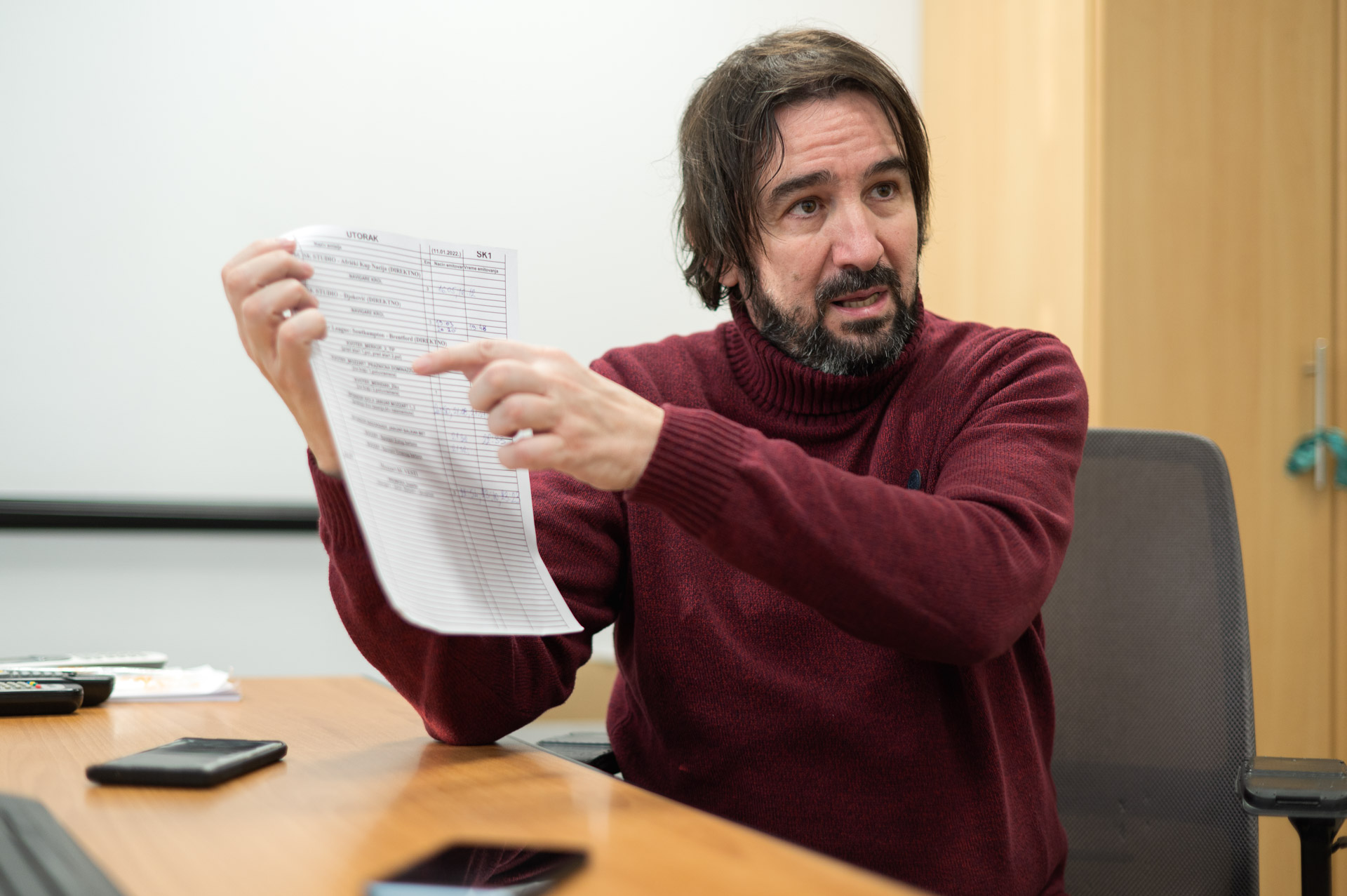
You’re famous for the thorough preparation you do for every broadcast.
I’m one of those journalists who still prepare a lot. This is my safety net. Although I’m an experienced professional of my trade, although I could easily get through a broadcast with no preparation, I still do it for my own peace of mind that allows me to do a good and hopefully enjoyable job.
And the preparation always helps, of course. If you forget something or you remember something in the moment, your prepared information is there to help.
Today’s TV screens are so high quality that you can easily see every detail of a game. To what extent has development of technology impacted your work?
Honestly I haven’t thought about that this way. Probably it’s easier today to notice any mistakes a commentator makes. But when it comes to my work, it never occurred to me to do things differently because of that.
For example, around 10 years ago, two Newcastle players - Jermaine Jones and Keiron Dyer - looked like twins in the court. Both of them were mixed race, both of them played in the back defender position, the only difference was the number on their jersey. It was a real lottery to figure out which one of them has the ball.
This still happens today. For example in Manchester City there’s Marez and Tores - the players who are built similarly and play the same position but they wear different shoes. That’s how I tell them apart.
The viewers often think that commentators have some special aides to help them recognize the players on the court. One time a man asked me how I can tell who has the ball and his friend confidently replied that I get screen tooltips like on Playstation! (laughter) Actually, we don’t have any software we see the same screen as everyone else.
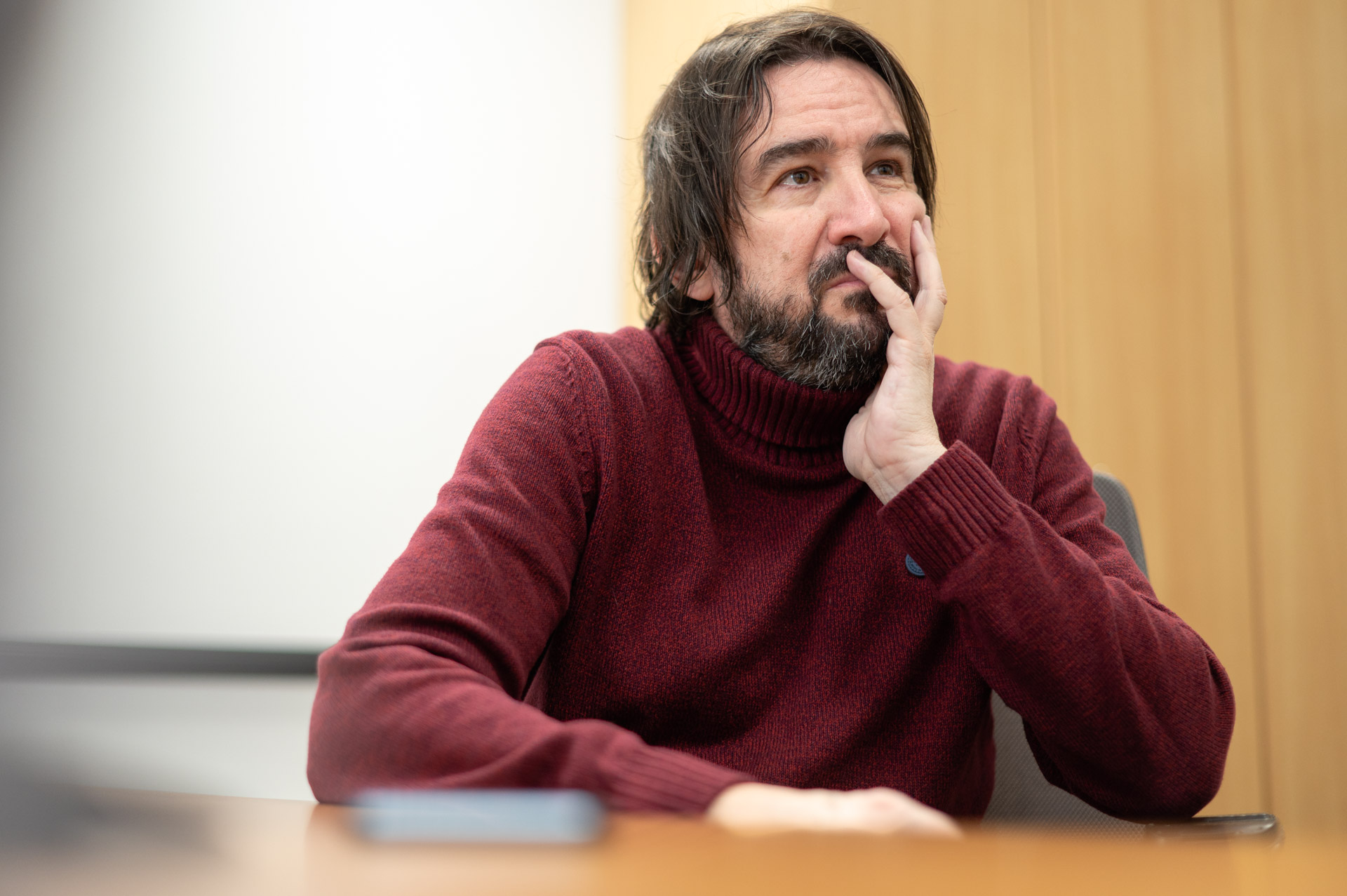
What was the first big event you attended?
Honestly I was afraid you’d ask about my first broadcast. Because I have no idea. (laughter) I don’t even remember which sport it was. When it comes to that, I really don’t keep track.
ANyway, the first big event I attended professionally was the US Open. If I’m not mistaken, that was my first one. I was reporting for “Treci kanal” TV station. Back then, nobody sent you to events, but you had to find your own sponsors. Jelena Djokic played and it was interesting to some of the sponsors here. I went to New York and that was my first big, professional event.
We returned to Belgrade on 11th September 2001. We just landed and turned on our phones and then got a bunch of missed call alerts. My first thought was someone passed away. I called my mom to see what happened.
“Are you alive?!”
“We’re alive.”
“They’re bombing America!”
“What do you mean they’re bombing America?”
Then I pass by some screens on the airport and I see the image of the burning Twin Towers. It was a shock. We were wondering later if maybe our own plane could’ve been hijacked. It was chaos!
If this had happened while we were still on American soil, we would’ve had to stay there for at least another week. I don’t know what I would’ve done without any money. All in all, we got lucky.
With your regular employment with Sports club, you also started a course on sports commentating.
The idea came about after I got a million questions on my profession and how to become a commentator. Then, working with Sports club, I started the course which I still lead with Gojko Andrijasevic and Ilija Kovacic who is currently away for health reasons.
That course is a factual filter for bringing in new commentators. Ever since we started it, six people have been hired as commentators and some of them work on our website too. We even have a guy who works for Arena sports now and who took our course. A few other guys who found our school have also found work in this profession elsewhere. I’m incredibly pleased about that and it’s just proof that our course gives good results.
Our course takers are mostly men. We’ve had only several women so far because it’s still unimaginable in our region for a lady to be a sports commentator. Although we encourage them, this is probably the reason why they’re not very present in this line of work.
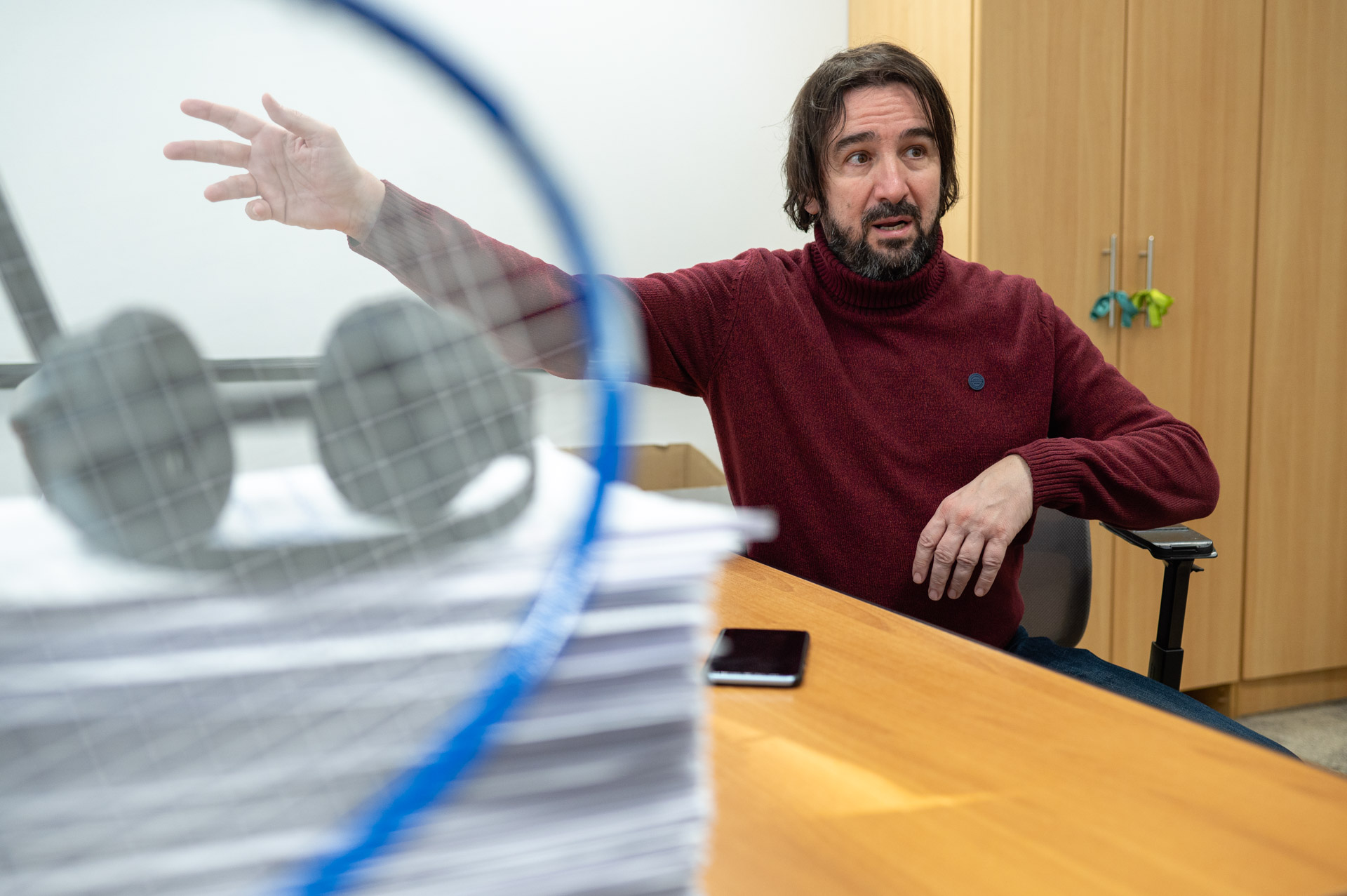
What is the training itself like?
At the start of the course, we teach the basics of journalism. So, before you take a seat at the mic, you have to know how to write a news article and other basic journalism skills. After the theoretical part where we speak, practice and train, the participants are moved to the commentating booth and do two trial broadcasts. Or rather, they commentate on two games. As my colleague Gojko Andrijasevic would say “I only transmit diseases and coal, otherwise I commentate.” (laughter)
Based on the recordings of these trials, people from the TV production decide if a candidate will be called in for a second tryout or if they’ll be hired eventually.
For example, our younger colleague Nikola Jancic went on to commentate on the finale of the World Volleyball Championship. Now he commentates on derbies, Premier leagues and so on.
Can you tell on the spot who is talented?
If I’m being honest, you can tell who has the talent. Let’s be realistic, we can tell from the start of the course who has the best chances of passing. Of course, we never write off anyone because they can definitely surprise us when they sit down at the mic.
There are a lot of factors involved - nerves, pressure…we’ve had guys who just locked up during their trial commentary. When that happens, we tell them to go wash their face, take a walk and calm down because it’s not the end of the world, nothing is live.
What I mean to say is there are people who take our profession lightly. They think all we do is sit around and speak into the mic. But only when you’re in the booth can you understand the true scope of this work. Many couldn’t sleep because of nerves for days.
This type of work is much more difficult than most people realize, which is why I always defend my colleagues.
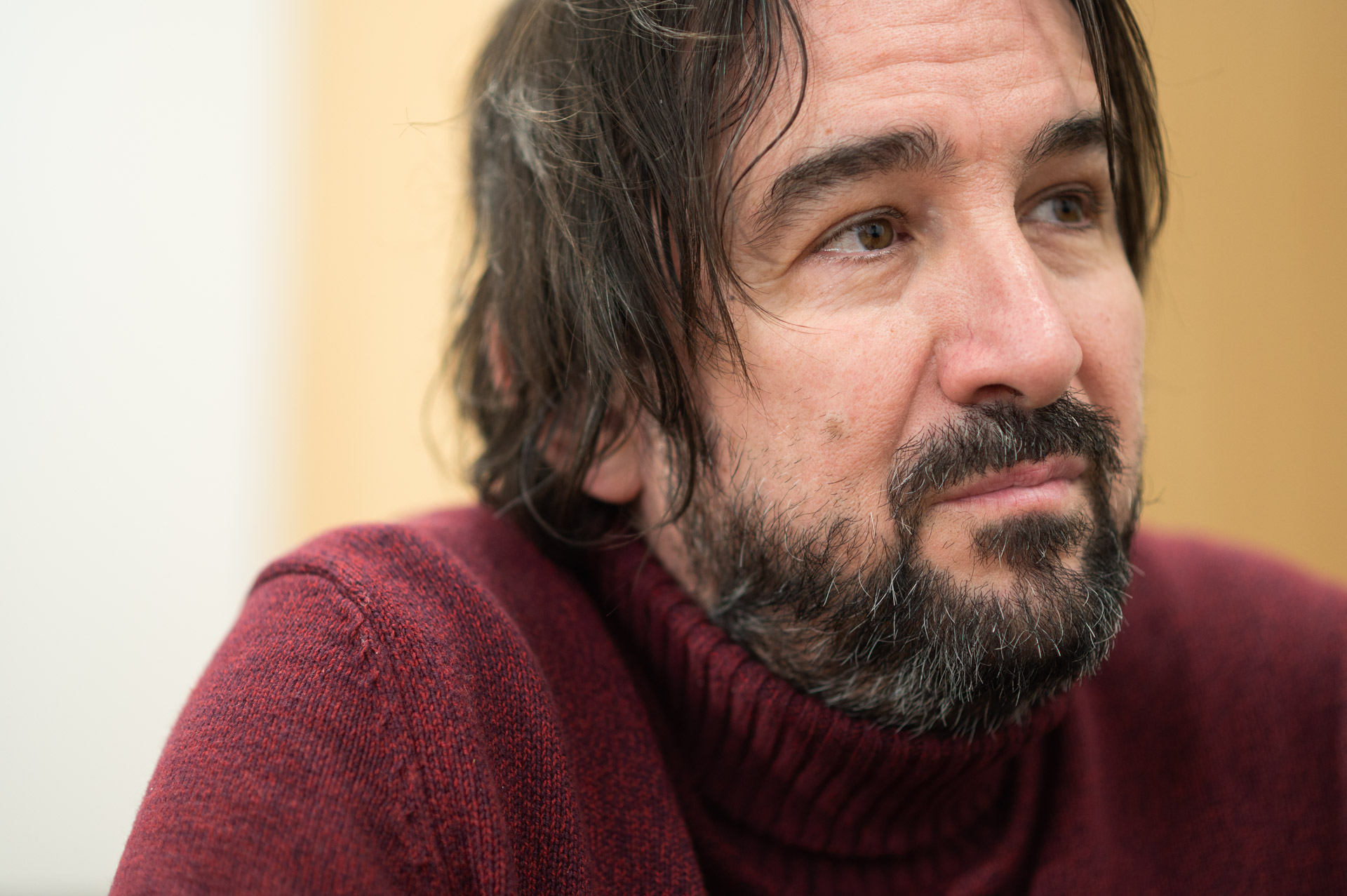
How important is diction and the tone of voice?
You as the viewer know this better than I do. What bothers you the most? Grammatical errors, poor diction or an unappealing voice? Personally, I don’t know. Ideally, all those factors would be as they should be. To have a pleasant voice, good diction and a good understanding of grammar. In the end, the combination of all those things should be a formula for success.
For example, I can really struggle with grammar. Sometimes I just guess if something is correct. And our language is notoriously complex. For example, even to this day I can say something like ‘with the ball’ instead of ‘has the ball’.
Still, the most important thing is professionalism. For example, the viewer doesn’t care if my cat just died, whether my internet works or there’s a fight going on behind me or I’m reporting in the rain. All those things and more have all happened to me.
What do you do in those unforeseen circumstances?
Depends from case to case. For example, when there was a fight in the Partizan stadium during a game, I was wearing headphones and didn’t hear a thing. I felt a commotion behind me and when I turned around there was a fistfight just two meters away from me. Then Trifke, a spindly fellow, placed his body between me and the fight. It was crazy!
What to do in those situations? Just make sure nothing disrupts your focus. Your assignment is to make sure the viewers don’t suffer because of what’s happening around you.
I think routine is very important here. I’ve been through a lot and the fact that I’ve spent a ‘million’ hours in the booth helps me a lot.
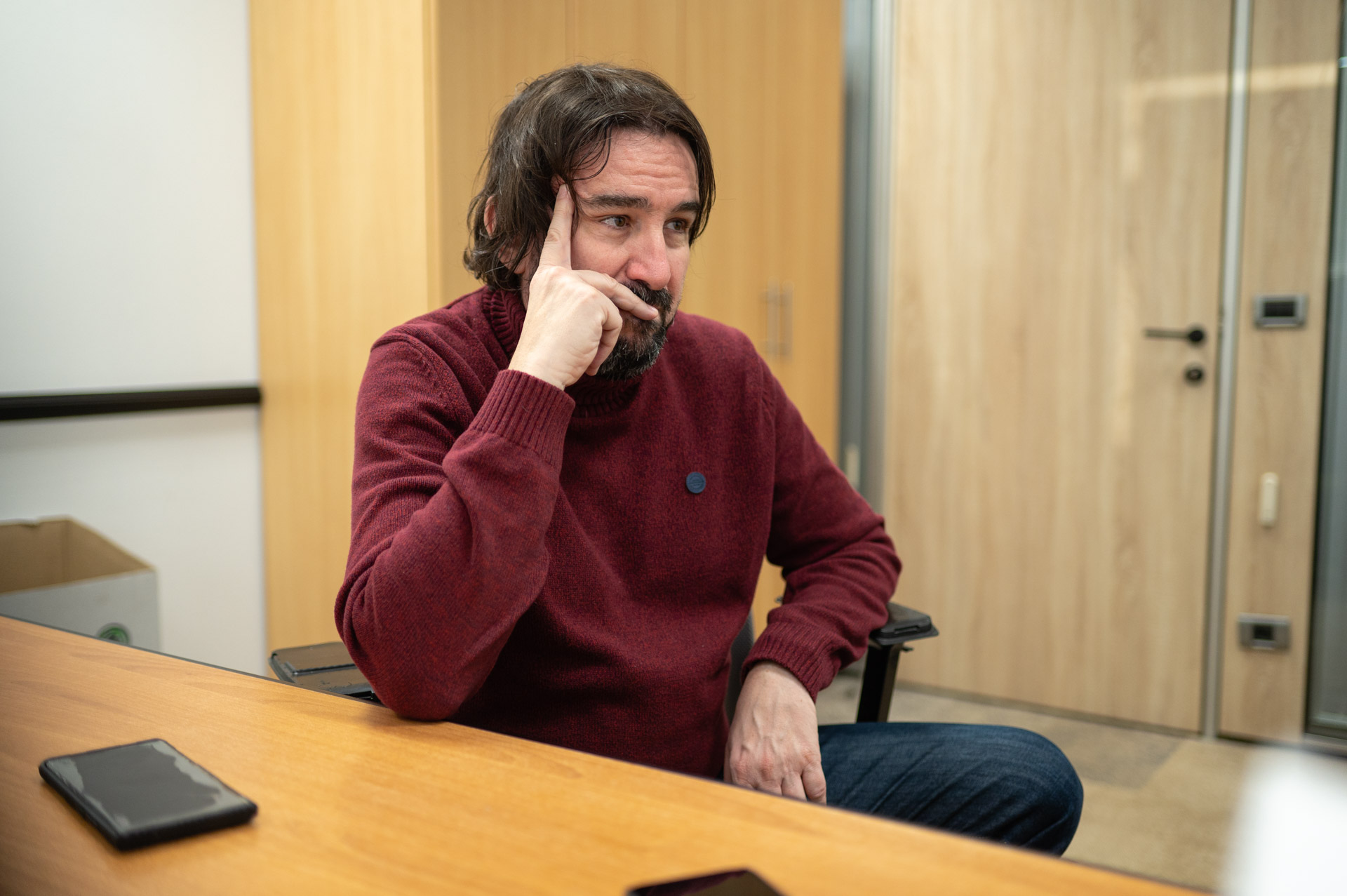
Do you ever get criticisms in the street?
I only had an unpleasant situation once in my life. I was talking on the phone when a passerby suddenly showered me with comments about some grammar error I made while commentating once.
I do get approached a lot. The problem is that I can’t internalize that I’m a celebrity. Mostly because I haven’t been on TV in a long time. I even anchored for the Sports mix show on “Treci kanal” TV. But back then I wasn’t commentating and not many could put my voice to my face. I think it’s only now over the past 15 years that people started doing that.
What’s interesting is that your son Lav is also in sports.
Seeing how mom has nothing to do with sports, the kid inherited my genes and love for sports from me. The moment I started bringing him to soccer games with me he was stoked and started training two sports. He trained both soccer and tennis at the same time. But it wasn’t long before he had to choose which to focus on. Honestly, he was talented at both and roughly on the same level so he had to choose.
As someone who’s been in tennis for a long time, I knew the expenses in store for us if he chose tennis. I told my wife I’d have to rob a bank every month to pay for it all, so it’s better to nudge him towards soccer. She was opposed because she didn’t want her baby to have ‘his legs broken in the field’.
In the end we agreed to let Lav decide and he opted for tennis. Then I tried to make him hate tennis but when I saw how much he loved it, I just didn’t have the heart.
Do you train him?
I played with him for a bit at first. What’s interesting is that I never trained him because I didn’t want to go down that path. First, I’m very busy and this requires complete engagement. I couldn’t do that because I had to earn money to pay for my son’s tennis. I don’t come from a wealthy family, nor do I do something extremely well paid. This is why I work every day to be able to afford this for him.
In time he changed coaches. After a certain period a new coach would come. It’s very rare that someone works with one coach from start to finish of their career. The coaches work with certain ages for a reason.
Lav is now 17 years old and all in. He’s been attending an American online school for two and a half years, so it’s going towards college. I’m a sensible parent and I can’t say I can see him winning the Wimbledon. If he becomes a pro player, great. Otherwise, he’s got a backup plan in college.
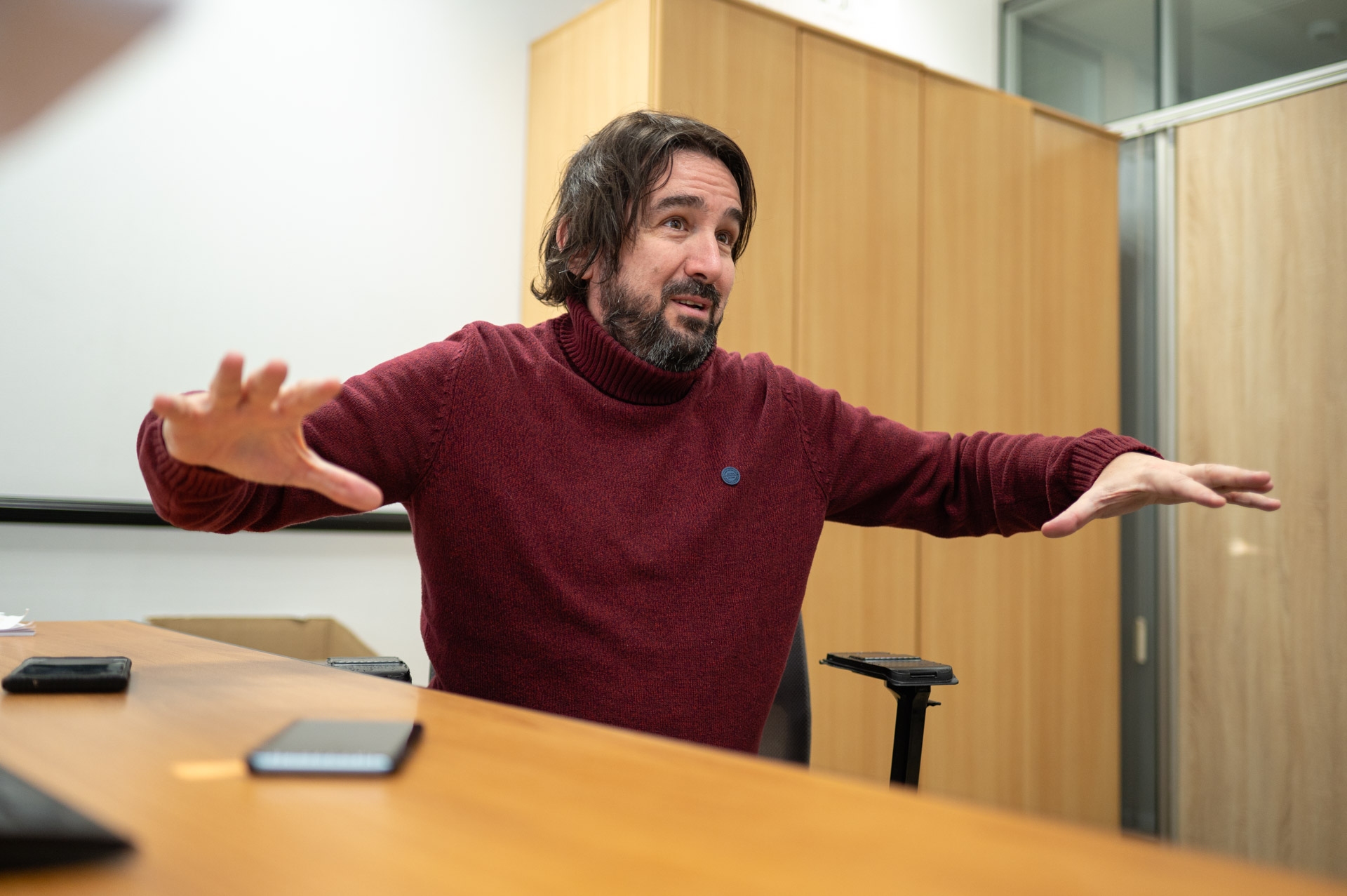
The golden generation of Serbian tennis seems to be passing. Was this the height of our tennis or do you think newer generations can attain a similar success?
We have probably experienced the height of Serbian tennis. But on the other hand, what does the height even mean? What would a similar success be? Another Djokovic? That will never happen. But in terms of the golden generation - Tipsarevic, Troicki, Zimonjic, Ana, Jelena - I can say we have their successors.
We’ve been a bit spoiled so we look at everything through the lens of Novak Djokovic. There’s a famous statement by Tipsarevic who said “What good is it that I’m number 8 of the world when I’m not number 1 in New Belgrade.”
We shouldn’t forget that apart from Novak we have four more players who rank among the top 50-60 players in the world, which is abnormal for a tiny country with no real infrastructure, training conditions or an academy. It’s undeniable that we have players who can achieve results of Tipsarevic and the gang. But a new Novak will never appear - not just in Serbia, but anywhere in the world.
What is it like when you’re watching a game for your own gusto?
Sadly I keep analyzing what my colleagues say. It’s an occupational hazard. I can’t fully relax and enjoy the game. I just always register what they’ve said and I keep balancing in my head what I’d say in that situation or not. I get a lot going through my mind.
Do you ever watch recordings of your own broadcast?
Never in my life! I don’t listen or watch them. I get embarrassed to this day. I’ve never listened to a single recording nor could I ever watch a show I worked on.
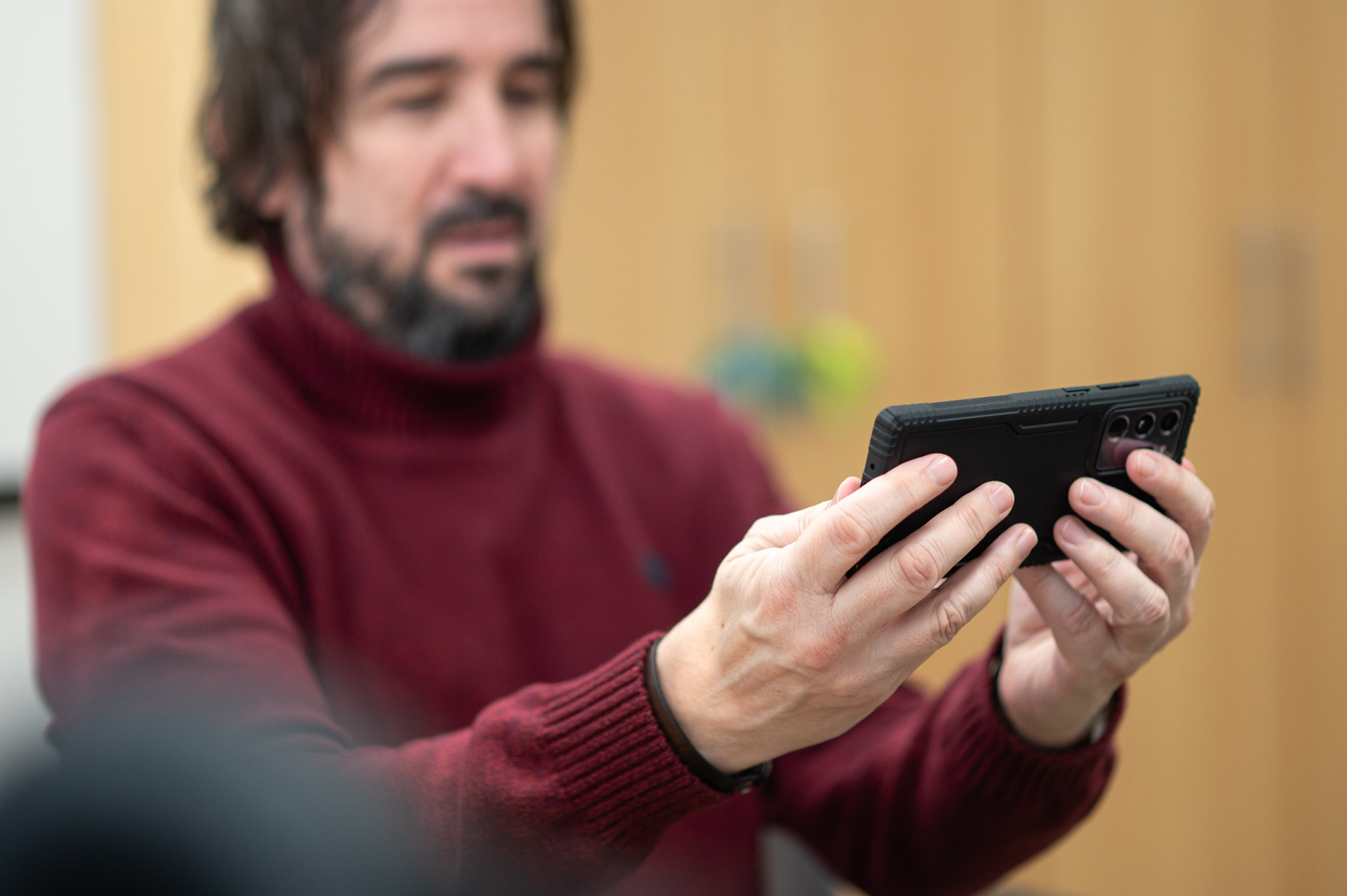
Soccer and tennis which you usually broadcast are very different sports. How does that influence the way you make your commentary?
Sports are like different personalities so to speak. If sports were people, what kind of person would soccer be? It would be some kind of lovable scoundrel from the neighborhood who would do something wrong now and then but would still have a big heart. And tennis? It would be a gentleman dressed to the nines, smelling fantastic and so on.
Those are the kind of energies those sports have. Therefore, your own behavior in the booth should match them. You can’t commentate on the exciting situations in soccer and tennis the same way. Soccer is a lively sport - you watch it with snacks and some swears. When a goal happens, you jump up and down and scream. Tennis, you sit down - applaud for a point. That’s why you have to make your own balance and make sure that what you do is appropriate for the sport you are commentating. That’s much easier to do if you really love the sport in question.
Commentating requires concentration. How much does the presence of others influence your work?
For example in Wimbledon you are never alone. The booths aren’t closed, but segmented and there’s a gaping corridor behind you. On one occasions there were Japanese commentators next to us - 84 of them. They were behind me the entire time. I continued commentating, but it wasn’t pleasant.
In the events where I commentate on the spot, there’s usually someone sitting right next to me. Often people ask to join me in order to see the whole thing so they stay with me in the booth. I can’t say it’s pleasant working like that because it always feels like someone is intruding on your intimate moments. It’s also a distraction. It doesn’t happen often but you get through it with enough experience.
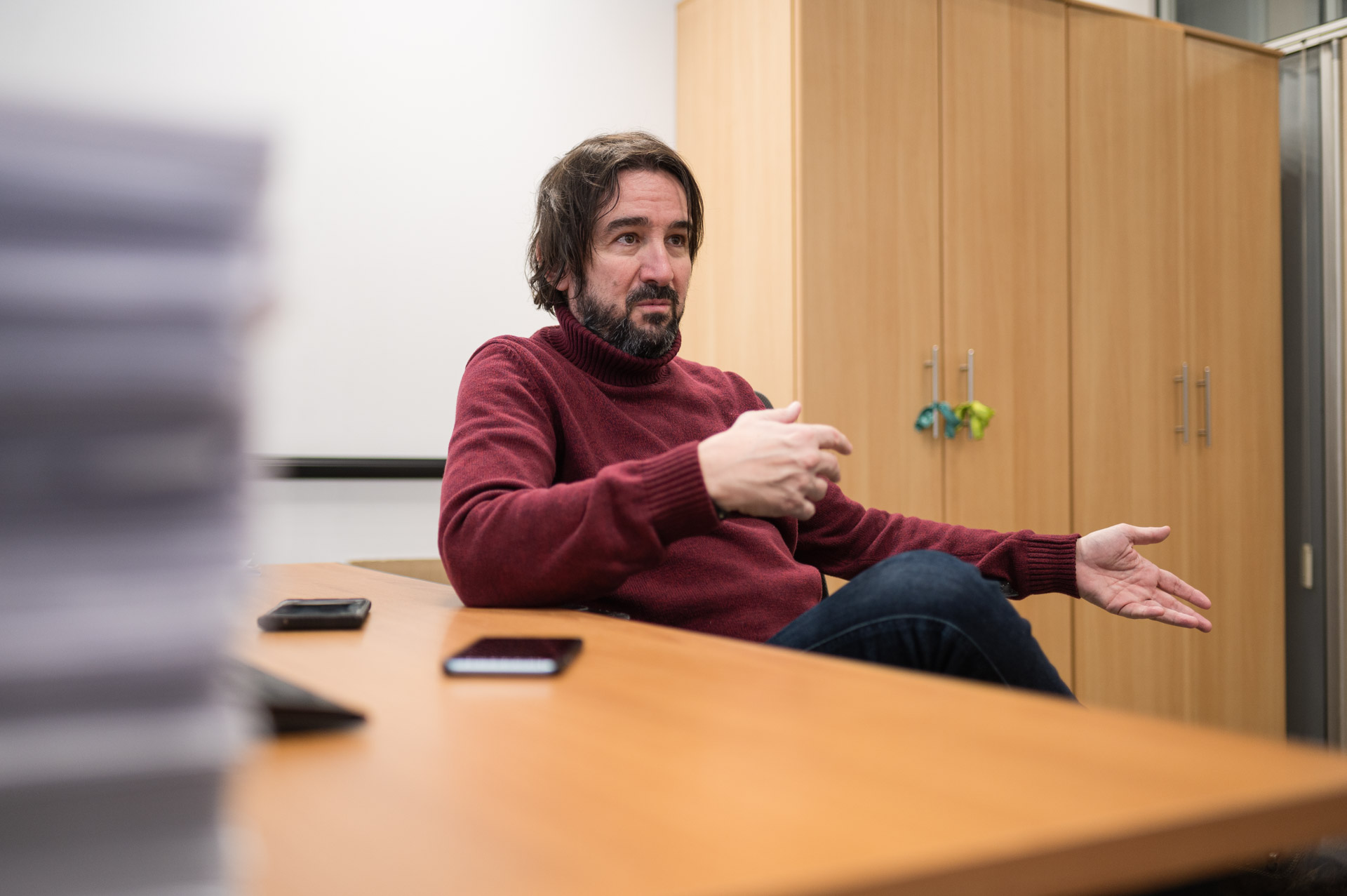
What would be your dream game or match to commentate but you never got the opportunity to do it? And what would you never commentate?
I think I’ve truly experienced the height of my career in that regard - and several times over. For example the Wimbledon final match in 2019 between Djokovic and Federer. That was one of the most important matches in the history of tennis. I think that was truly the pinnacle of my career. So I commentated on the match between the two greatest players in history - and with a finish like that. I could probably never achieve the same in the next three lifetimes.
As for what I’d never commentate. I can’t tell you because I already commentated on something like that. I commentated on a total of 15 sports in my lifetime. Many of them are from the Olympic games. That was torture for me. I love sports that involve a ball, but races of any kind don’t interest me at all.
During the Olympics I don’t remember if it was Athens or Beijing, they had me commentating on a moto cross. They ride their bikes on some hills and I don’t know a single rider, don’t know the rules or anything about the sport. They usually give you the assignment around three hours before the event and as a professional it’s up to you to prepare as much as you can. I’ve done baseball too, but I love baseball. I got involved with that sport because I was the only one who knew the rules - which I learned from video games, by the way.
In Beijing for example I commentated gymnastics. Gymnastics is a serious sport that has a lot of viewership in the Olympics. That was hard for me because I knew nothing about that sport. I even requested an expert consultant but I didn’t have any luck. So I had to just do what I could. I found some encyclopedia, discs with the late Srdjan Knezevic and Dusko Korac who did gymnastics. I did my best to learn about this complex sport in days.
At first I was just giving basic info - who the contestant was and where they are from. At first I could only make conclusions based on the applause because the audience was better informed than I was. It wasn’t until the final day that I learned the names of the styles and could really see when the contestant did something outstanding.
Before the pandemic, you had a show in which you combated obesity. Can we expect something similar in the future?
Yes, we did that just before Covid and called it “Visko protiv viska”. My friend thought of the idea and it had a surprising amount of success. The premise was: How a middle-aged guy with a stupid weight problem could use exercise to get into some kind of shape.
We tried to make it interesting. He was my slave-driver who spurred me on and gave me tasks. I had to do it all. I pushed myself to the limits. At one point I even threw up, which the cameras recorded.
In the end I pulled a muscle so I barely finished the final few episodes. After that Covid hit and we put an end to it.
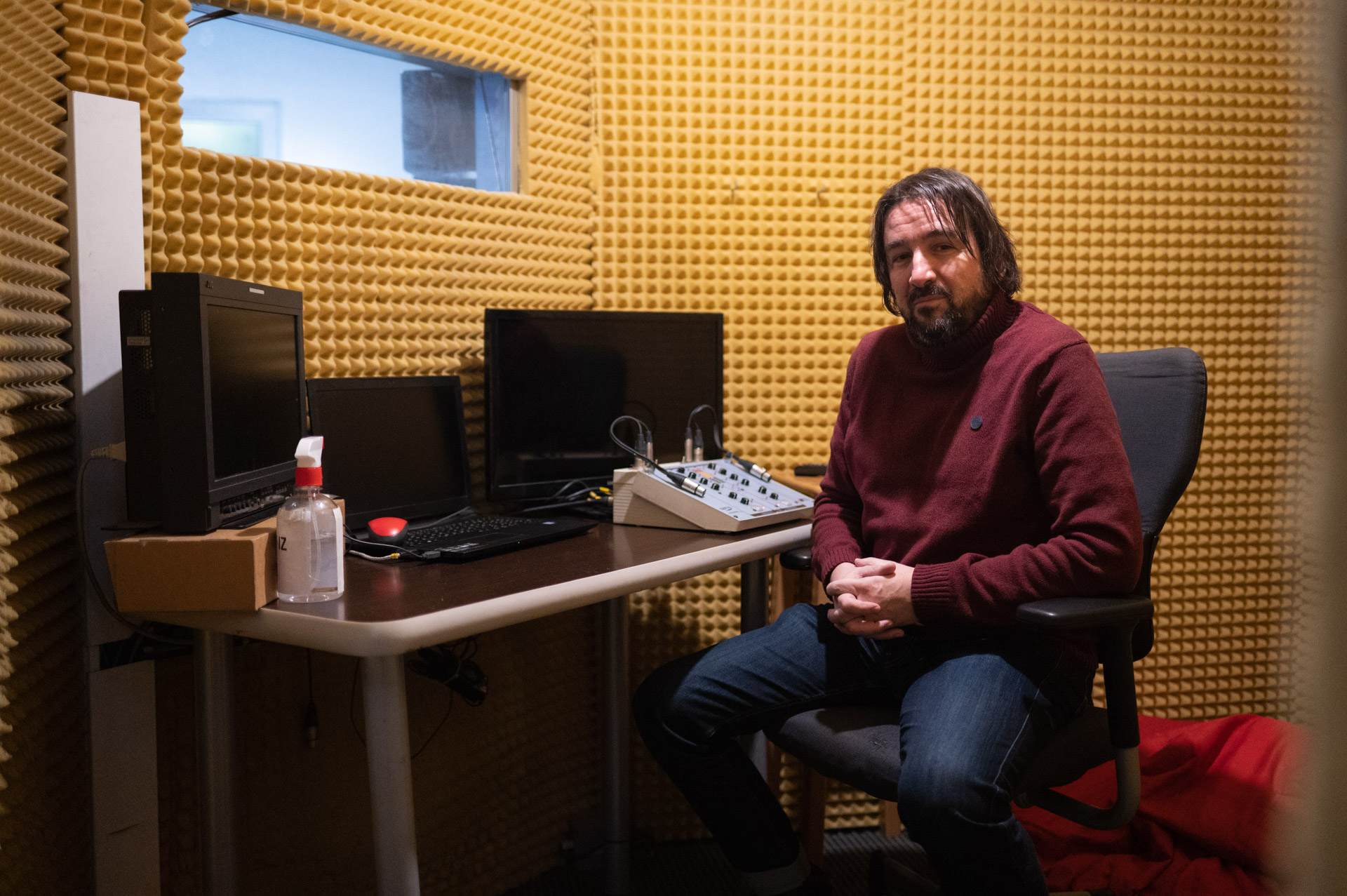
You also started working on the very popular podcast “Wish&Go”. How do you like that format?
I like it a lot. This is something wonderful for me because it doesn’t require a lot of preparation. I’m genuine during the podcast just like I am when commentating. I just need to check the news before recording.
I lead the podcast with my colleague Ivan Govedarica. He is ‘Go’ and I am ‘Wish’. We have a loyal audience. Our previous episode had 60.000 views, which is incredible for a tennis podcast. That’s because we don’t focus just on tennis. We get lots of questions about other sports, culture, politics. We talk about everything openly, which is why we’ve expanded our audience.
What are your plans moving forward?
My biggest unfulfilled wish is to jump out of an airplane. With a parachute. Working one, if possible. (laughter) My second wish is to write a book. I’ve always been good at writing. Maybe I wasn’t the best student, but I always won awards in Serbian language. That’s my desire, but I don’t have the time to really work on that now.
They tried to make me write a book about tennis. Vlada Stankovic, the famous basketball journalist in particular. But I never had the time. Maybe someday, as a sort of almanac. But I’d rather make it some kind of journalist and commentating textbook.
I also have an idea to work in production a bit more in the future. I’m starting to feel exhaustion, though. It’s harder and harder to find motivation, to prepare and execute my ideas.
But we are planning some new shows, maybe a sports quiz. At first I’d be included in the production but eventually I’d see how to pass it on to someone else.




 6 ℃
6 ℃

